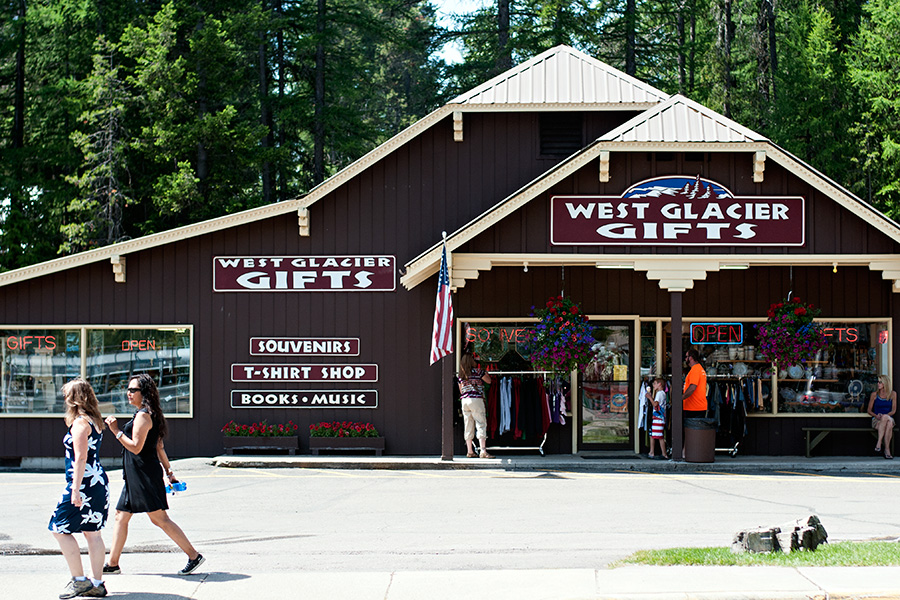The Flathead County Commissioners at their Nov. 22 meeting voted 2-1 to deny consideration of adopting the West Glacier Vision Plan as an amendment to the Flathead County Growth Plan. Commissioner Randy Brodehl provided the only voice of dissent.
For more than two years, stakeholders in the gateway community of West Glacier have worked to craft a visioning document to identify shared values and guide land-use planning and future development at the edge of Glacier National Park. Despite the extensive engagement with county, state and federal officials, the vision plan did not resonate with the county commissioners, who expressed concerns over the county’s inability to enforce some of the goals stated within.
“These sorts of documents really work well in communities that have the structures in place to support them,” Commissioner Pam Holmquist said. “The vision plan specifically says it’s not regulatory, but if adopted this is the first step towards regulation … It would be difficult, if not impossible, to implement and enforce in your community.”
Holmquist pointed to specific provisions in the vision plan including outdoor-focused building design, increasing connectivity, requiring dark sky-compliant lighting, and advocating for affordable housing as unenforceable provisions.
“We don’t have any mechanism for that in the county,” she said. “In order to implement the goals, actions and items in this vision plan, West Glacier should maybe consider incorporating. An incorporated city has way more latitude on how they can control how their community grows.”
Commissioner Brad Abell agreed that the community could consider incorporating and voted in favor of Holmquist’s motion to deny consideration of the plan.
According to the West Glacier Vision Plan’s executive summary, “the intent of the Vision Plan is to focus planning efforts and policies to address current issues and future opportunities. It is a planning document that aids in making decision on land use, redevelopment, public service, facilities, infrastructure, environment and community communications.”
In 2016, the document states that residents of the gateway community “woke up” to the reality that Glacier National Park received an annual visitation greater than the population of Chicago, with most visitors accessing the one-million-acre park via the two-lane Going-to-the-Sun Road.
In 2019, the National Parks Conservation Association helped the community apply for a technical grant from the National Park Service’s Rivers, Trails and Conservation Assistance Program to engage with the public on the future of West Glacier. Led by longtime West Glacier resident Mary T. McClelland, a planning team began to hold in person meetings to seek comments from local stakeholders.
Despite the disruption of the COVID-19 pandemic, the planning team, which included members associated with Glacier National Park, the U.S. Forest Service, Flathead County Planning Department, Pursuit Inc., Montana House, and the Rivers, Trails and Conservation Association, continued developing goals for the community.
The plan lays out five “value statements” — preserve community character and sense of place; create a safe and resilient community; enhance community communications and participation; support sustainable outdoor recreation opportunities; and provide seamless transportation connections.
In 2021, the plan went before the Flathead County Planning Board as an addendum to the Canyon Area Land Use Regulatory System (CALURS) that guides land-use planning in the area, but was rejected with recommended changes. In August of this year, the planning board unanimously approved adding a revised edition of the vision plan to the Flathead County Growth Policy as an amendment to CALURS.
Sarah Lundstrum, the Glacier program manager for the National Parks Conservation Association and a founding member of the West Glacier Planning Team, said the group hopes this isn’t the last opportunity for the plan to succeed.
“We are building our strategy to move forward,” Lundstrum said.
At the commissioners’ Nov. 22 meeting, another member of the planning team, Monica Jungster, owner of the Montana House in West Glacier’s Apgar Village, said the community would continue seeking out ways to preserve West Glacier’s character and values.
“In this small village the community members pick up what we can, we share information, we go find experts and have meetings,” Jungster said. “Then you hope and pray a little bit that your neighbors will, on their own volition, decide to join you.”
